Prime Minister Manmohan Singh has invited a few editors to his residence on Monday morning. According to sources in the Prime Minister's Office, nearly a dozen editors will meet Dr Singh at his residence on Race Course Road at approximately 11 am on Monday.
The meeting of Dr Singh with the media, in the wake of the completion of the Parliament's monsoon session, is significant.
Since the last few days, Dr Singh and his government have been facing quite a lot of bad press because of intra-party political rivalry. The government also failed to pass as many as five bills in the recently concluded Parliament session.
Ministers in Dr Singh's Cabinet like P Chidambaram and Kapil Sibal are facing snubs and serious criticism, not as much from the Bhartiya Janata Party or other Opposition parties, but from his own party men. Sibal faced an attack right inside the Parliament when he tried to push through the Education Tribunal Bill. This bill is important to pave the way for a new Act that could allow foreign universities to enter India's education sector.
'Sibal's thoughts run faster than the deeds of his ministry'
Image: Prime Minister Manmohan SinghThe way Keshav Rao, special invitee to the Congress Working Committee, stalled the bill in the Rajya Sabha, was an eye-opener to political observers in New Delhi.
While opposing the bill, Rao said, 'His (Sibal's) thoughts run faster than the deeds of his ministry."
Rao was covertly blessed in his action by none other than senior Congress leader Oscar Fernandes. It is is interesting to note that Fernandes is the chairman of Rajay Sabha's Standing Committee on Human Resource Development that debated the issue of the tribunal. Incidentally, Rahul Gandhi is one of committee's current 28 members.
Congressmen opposing the bill also alleged that Sibal, a lawyer by profession, wants to accommodate some retired judges and law officers in the proposed tribunals.
'A lame duck serving out its last few months'
Image: HRD Minister Kapil SibalThe Bill, once passed, would establish tribunals at the central and state levels for adjudication of disputes related to teachers, students and even private and public educational institutions. It was passed in the Lok Sabha.
But Sibal received harsh criticism from Rao in the Rajya Sabha, who said that the bill had been presented without holding proper consultations with the stakeholders like teachers, education institutions etc. Importantly, he said that Sibal is ignoring all recommendations of the Parliamentary Standing Committee.
Sibal was forced to seek a deferment of the Bill which had been cleared by a Group of Ministers and the Cabinet.
This is a clear case of political sabotage within the party. When the BJP and other Opposition parties demanded the deferment of the Bill, not a single Congress member came to Sibal's defence.
In fact, Rao's attack in Rajya Sabha is just one amongst the many recent embarrassments for the Dr Singh-led central government.
In the last ten days, many political pundits and senior editors have written about Dr Singh's government becoming "a lame duck serving out its last few months in power."
Dr Singh is facing a crisis
Image: Congress leader Rahul GandhiShekhar Gupta, editor-in-chief of The Indian Express, has dubbed the United Progressive Alliance government as the 'United Regressive Alliance'.
While deliberating on why the government seemed to be drifting, he said, "Maybe, just maybe, the problem arises from the political mood and situation of the Congress party. Half its leaders, beginning with Rahul Gandhi, are already in campaign mode for 2014 and the problem is that the other half presume that the election has already been won and are therefore positioning themselves for the share of the power the next election will bring."
Gupta adds, "This has a twin consequence. First, you lose interest in the current government, because it is a mere interregnum, a minor halt en route the real thing. Second, how do you ensure the jobs and the positions you think you deserve in 2014, unless you discredit the ones holding the same now?"
Clearly, Dr Singh is facing a crisis where the party's political activities are directed against his Cabinet and the government's decisions and there is a significant roll-back, as it happened in case of the Vedanta project.
Corporate India apprehensive
Image: Protests against the Vedanta projectSwapan Dasgupta, senior writer, while discussing Environment Minister Jairam Ramesh's action regarding the Vedanta project and other such issues, said in his weekly column in The Pioneer, "That is significant, however, is the extent to which his ( Jairam Ramesh) actions were targeted at the prime minister's agenda. The manner in which Ramesh used his unilateral action against the Vedanta aluminum plant in Kalahandi to obfuscate his spiteful sabotage of the Posco project -- the single largest FDI investment in the country -- was characteristically clever."
Dasgupta adds, "But apart from giving Rahul Gandhi an opportunity to be photographed with some grateful tribals and settling some old scores with (Orissa Chief Minister) Naveen Patnaik, the Posco decision was also a well-aimed blow at the prime minister. The PMO had, after all, been monitoring the progress of the Posco project on a weekly basis and had never remotely indicated to the Orissa government that something was amiss."
One is sure that the PMO must be receiving feedback from India's corporate leaders about their growing apprehensions after the environment ministry's decision to target Vedanta.
Is the Sonia Gandhi-Rahul Gandhi led activism likely to take the shape of movement? Is Rahul Gandhi's support to stall Vedanta through the environment ministry a stand-alone decision or is it the Congress party's newly-adopted policy to shift away from Manmohanomics?
Dr Singh should clarify his stance
Image: Environment Minister Jairam RameshM J Akbar, veteran journalist and editor-in-chief of the Sunday Guardian, had an explanation when he tried to debate the Vedanta issue.
He wrote, 'It is axiomatic that a largely impoverished nation needs a political party that the poor can identify with. The Congress has set out to be the party of the poor in daytime, and of the rich at night. Its sunlight politics will fetch votes, its twilight policies will enable it to govern. This is an extremely clever act whose opening scenes are being played out for a new generation that is vague about Indira Gandhi and amnesiac about Nehru."
Akbar said that Rahul is trying to give 'protection to poor' from 'Delhi', which means the UPA government.
He said, "The hero of this drama must have the charisma to dazzle the poor and the flexibility to keep the rich onside. That is the challenge before Rahul Gandhi. His avowed role is to be the guardian of the poor in Delhi, which means that the poor need protection from Delhi."
Dr Singh, in his meeting with select editors, will get an opportunity to touch upon such damaging perceptions. Hopefully, he will be able to present his defence and clear the air.

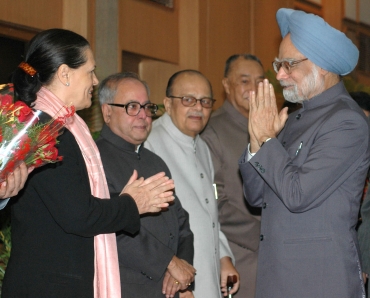
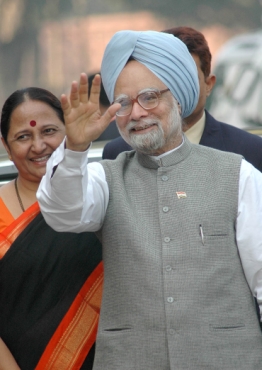
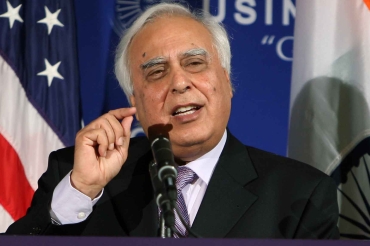
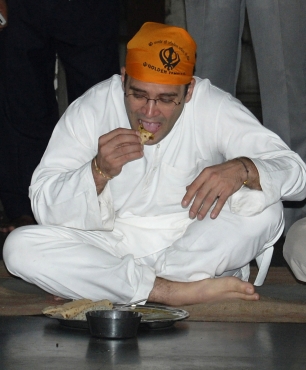
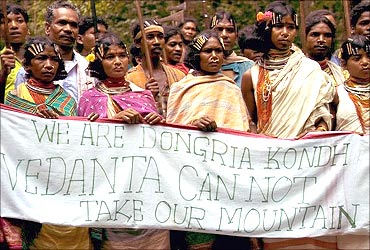
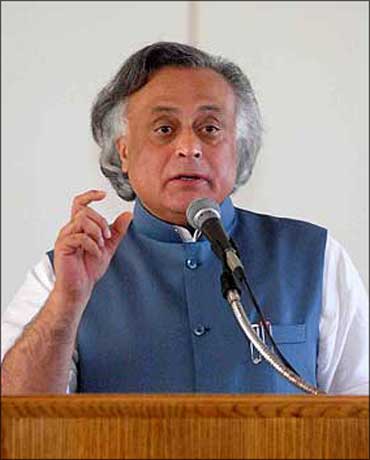
article